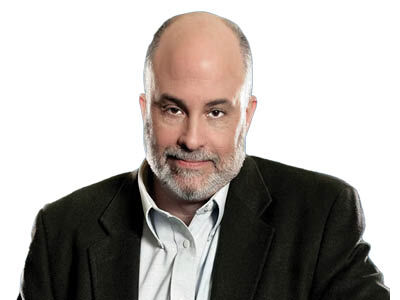What we know about autism's causes and any potential link to Tylenol
News > Health News

Audio By Carbonatix
11:40 AM on Monday, September 22
By LAURAN NEERGAARD
WASHINGTON (AP) — Many doctors and scientists were reeling Monday after President Donald Trump went on TV to insist that pregnant women should never take Tylenol and revive debunked theories about vaccines and autism.
Trump went beyond his own Food and Drug Administration's more modest advice that doctors “should consider minimizing” the painkiller acetaminophen's use in pregnancy — amid inconclusive evidence about whether too much could be linked to autism. His comments came as the administration also moved to make more available a possible but unproven autism treatment — and also announced more research into the disorder.
Dr. Steven Fleischman, president of the American College of Obstetricians and Gynecologists, worried that the Tylenol claims would terrify mothers-to-be and parents of children with autism.
“I don't want you going back and looking and saying to yourself, ‘I shouldn’t have done this, I shouldn't have done that.' It's nothing you did. It really is not,” he said. “Not treating the fever probably has more adverse effects that you need to worry about than taking the medication.”
As for vaccines, “studies have repeatedly found no credible link between life-saving childhood vaccines and autism," said American Academy of Pediatrics president Dr. Susan Kressly. ”Any effort to misrepresent sound, strong science poses a threat to the health of children."
Health Secretary Robert F. Kennedy Jr. promised earlier this year to determine the cause of autism by September. That baffled brain experts who say there is no single cause and that the rhetoric appears to ignore decades of science into the genetic and environmental factors that can play a role.
Here's what we know about autism and the Trump administration's new steps to address it.
Autism isn’t a disease. It’s a complex developmental condition better known as autism spectrum disorder that affects different people in different ways.
It can include delays in language, learning or social and emotional skills. For some people, profound autism means being nonverbal and having intellectual disabilities, but the vast majority of people experience far milder effects.
There are two main reasons. First, the definition of autism broadened as scientists expanded their understanding of its wide range of traits and symptoms. That led to changes in the criteria doctors use to diagnose autism and improvements in screening.
At the same time, parents increasingly sought a diagnosis as autism became better known and schools began offering educational services they hoped could help their kids.
As late as the 1990s, only children with the most profound symptoms were considered to have autism. In the early 2000s, as the definition began changing, the autism rate was estimated to be 1 in 150 children. The latest count found 1 in about 31 children are affected by autism spectrum disorder.
The increase isn't among the profound cases; it's an increase in the milder cases that weren't historically considered autism, said expert Helen Tager-Flusberg of Boston University.
There is no single test for autism, which is diagnosed mostly through developmental and behavioral assessments.
It's hard to tell if there may be additional factors behind the increase.
Science has shown autism is mostly rooted in genetics, with the discovery of several hundred genes that play a role. Those genes can be inherited, even if the parent shows no signs of autism, or mutations can occur as the brain is developing and its rapidly dividing cells make mistakes.
Experts say different combinations of genes and other factors can all affect how a fetal brain develops. They include such factors as the age of a child's father, preterm birth and whether the mother had health problems during pregnancy such as fevers, infections or diabetes.
Some studies have raised the possibility that taking the over-the-counter painkiller in pregnancy might be associated with a risk of autism — but many others haven’t found a connection. In addition, the Coalition of Autism Scientists said Monday that acetaminophen use during pregnancy hadn’t increased in recent decades like autism rates have.
But untreated fevers in pregnancy, particularly the first trimester, increase the risk for miscarriages, preterm birth and other problems, according to the Society for Maternal-Fetal Medicine.
Part of the difficulty in settling the question is that studies using medical records can't tell if the fever, or a drug to lower the fever, might be connected to later health.
The FDA wrote doctors on Monday advising them to minimize acetaminophen's use during pregnancy but acknowledged uncertainty: "To be clear, while an association between acetaminophen and autism has been described in many studies, a causal relationship has not been established and there are contrary studies in the scientific literature.”
Tylenol's label already advises women to ask their doctor about use in pregnancy, and the society continues to advise that it's an appropriate option.
Also Monday, the FDA announced it was taking initial steps to try to approve a folic acid metabolite called leucovorin as a treatment option for some people with autism. It's based on a theory that some people have too little folate, a form of vitamin B, in the brain and that giving them more could alleviate some symptoms.
Women already are told to take folic acid before conception and during pregnancy because it reduces the chances of certain birth defects, advice that possibly could help lower autism risk as well, Tager-Flusberg said.
Leucovorin is sold for other health conditions and already used by some families in hopes of helping autism. But Tager-Flusberg cautioned that only a few small, first-step studies have been done so far.
“Is this something worth pursuing? Yes, it is in potentially a subset of individuals,” she said. But there needs to be a large, very rigorous study to prove if it really works.
Any concern that vaccines could be linked to autism has been long debunked, stress scientists and leading advocacy groups for people with autism.
Childhood vaccines — and how and when to give them in combination — go through rigorous studies, and safety tracking continues for years as the shots are used.
“No doubt children will suffer” from Monday's claims, said Dr. Paul Offit, a pediatrician and vaccine expert at the Children's Hospital of Philadelphia.
___
Associated Press journalists Matt Perrone and Mike Pesoli contributed to this report.
___
The Associated Press Health and Science Department receives support from the Howard Hughes Medical Institute’s Science and Educational Media Group and the Robert Wood Johnson Foundation. The AP is solely responsible for all content.







